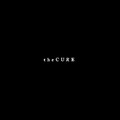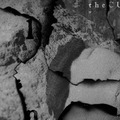First Impressions
It’s an odd feeling, trying to capture “first impressions” when we’ve already heard most of these songs before. It reminds me of how we used to pass around well-worn, endlessly copied bootleg tapes before finally getting our hands on the real album – something that could actually be ours to hear as it was meant to be.
For those who might not know, this experience was especially common in Hungary and the rest of the former Eastern Bloc up until the ‘90s. Back then, Western music like The Cure didn’t reach us easily due to the restrictions on Western media under socialism. Despite these barriers, fans found ways to spread music through copied tapes and gatherings, creating an underground community that thrived on a shared passion for what was, in a sense, forbidden. It was a kind of movement, a bond that bridged us across closed borders and made the music feel even more essential.
After the initial listen, I couldn’t help but think back to Depeche Mode’s Memento Mori. Both albums elicit a similar sensation – an experience that resonates most deeply when you’re alone, though somehow paradoxically shared. Perhaps it sounds like a contradiction, but this was truly my first reaction. This album holds content that feels profoundly personal, depending on one’s life stage, experiences, and the weight of past losses.
Emotionally, it hit me hard, and I suspect this may make me more biased than I would have been 10, 12, or even 20 years ago. It’s likely to be an entirely different experience for you if you’re in a phase where you’re still raising young children, everyone dear to you is still around, and you’ve yet to face the permanence of certain farewells.
The officially released singles, Alone and A Fragile Thing, were released beforehand, giving us a bit more time to absorb them.
Alone
This song feels like a meditation on mortality. When it first came out, I penned my thoughts, which you can revisit in my previous analysis (HU) if you’re interested.
And Nothing is Forever
I loved this one even at the concerts and eagerly awaited its official release. I’ve discovered new nuances in the studio version that add depth to the track. Beautiful, introspective, and thought-provoking. It’s a delicate reminder of how fragile everything we hold dear is, like a final, faint heartbeat one can’t help but listen to, accepting the beauty yet impermanence of the world. It suggests that real value might lie in what’s fleeting, making each moment lasting, even if painfully so.
A Fragile Thing
While Alone wraps itself in darkness, A Fragile Thing unveils a more internal world. With each listen, it grows on me. It holds despair, helplessness, vulnerability, and the longing to revive what’s already lost. Layers reveal desperation and the painful recognition of a rift that can no longer be bridged. Regret permeates the song, reflecting those decisions that follow us, especially when we’re forced to choose between equally essential needs – even if we’re sure we made the right choice.
The music perfectly complements the lyrics, taking us on an emotional journey. As the song opens solemnly, it doesn’t shy away from the yearning, the self-disappointment that Robert sings about. And the rhythm of the chorus somehow helps us accept it all with grace.
Warsong
Hello, Reeves!
Yes, we can tell you’re here. Loud and clear.
This track stands out even among The Cure’s darker ballads; it’s a bitter journey through toxic relationships, where inner war is not only inevitable but eternal. The ominous synths open a chasm into which Reeves’ guitar solo descends like fate itself. Robert’s vocals emerge midway through, as if the weight of realisation finally becomes undeniable: struggle is part of us – there’s no escape, just the shadow of eternal conflict.
The song delves into extreme human connections, where love and hate intertwine, drawing both parties into a downward spiral of self-reproach and mutual destruction. Robert’s bitter insight is that this struggle and self-destruction lie deep within us, as if we’re condemned to it. It’s a resigned pain – we long for peace, yet we’re pulled back into the same conflicts, as if eternal struggle is unavoidable.
Particular lines stand out:
I want your death
You want my life
Life and death – opposites, yet in Robert’s words, they express the same longing. A stark, emotion-laden antithesis – pure “Robert-ism.”
Drone:Nodrone
Wait, what?? What’s going on here?
It’s like the love child of David Bowie and Korn, secretly nurtured to someday become The Cure.
The bassline slams into me right from the start… I’m not just hearing it; I feel it in my throat. It’s slightly suffocating, but oddly satisfying. It’s how I imagine psychedelic, furious fear would sound. Korn’s ferocity holds on tight, then Bowie steps in, giving us a bit of breathing space, and Robert appears like a lost teenager caught between Never Enough and Wrong Number, searching, confused, grappling with identity and answers.
Quite the family.
I Can Never Say Goodbye
After that gut-punch, it’s comforting to have a more familiar kind of sadness.
This painfully honest track captures the unbearable feeling of losing a sibling, the struggle to face an inevitable farewell. With imagery of a dark November sky and a brewing storm, Robert Smith portrays deep grief and helplessness as something wicked approaches to take his brother. The song mingles the moods of hopelessness and irrevocable loss while Smith can’t bring himself to say the final goodbye.
I Can Never Say Goodbye is deeply personal, an expression of Smith’s struggle with his brother’s passing. The line, “Something wicked this way comes,” a direct nod to Macbeth, hints at the impending evil that takes his brother’s life – death itself, not sin, is the dark presence here. This reference amplifies the sense of vulnerability in the face of death that Smith felt as his brother was taken.
All I Ever Am
This was a completely new way of experiencing an unreleased track for me – reading the lyrics first, interpreting the mood before hearing a single note. AIEA feels closer to me this way, even more so than if I’d just listened immediately. Usually, it’s the music that creates the strongest impact, but here, the unadorned lyrics pulled me into an inner world that the music only deepened.
And here was the first “wow,” found in the bare, music-free version:
An Inner Labyrinth – All I Ever Am (EN)
It’s strange yet enthralling, listening to the music alongside the lyrics. It’s been less than 48 hours, and I’ve already listened… well, let’s say many times. I’m beginning to understand what captivated me. Here’s this sombre, profound text, paired with subtly ominous drums and dissonant keys that accompany them, immediately creating tension. These elements, along with the seemingly cheerier guitar and airy keys, set a delicate yet unresolved harmony. Robert’s deceptively light vocals layer over it all. It’s like when you’re crying over something painful, someone asks if you’re okay, and through tears, you force a smile, saying, “Yes, I’m fine; just cutting onions.” It’s ambivalent. Poignant beauty, bittersweet sadness, an emotional paradox. It really is a labyrinth.
I’m truly undone by it.
Endsong
Yes, this is good. Deep, heavy. Love it.
Endsong, through Robert Smith’s voice, is a personal, painful reflection on passing time and faded dreams. Under the red moon, Smith relives the hopes of youth, that world he once called his own, now completely gone. The chorus resonates with profound sorrow – all he loved has vanished, and he feels lost. The song becomes a raw expression of loneliness and loss as Smith is left staring into the dark void, accepting that he no longer belongs here. Under the night’s red moon, he revisits hopes and unfulfilled desires, poignantly capturing his existential view.
In Summary,
I’m genuinely drawn to this album, though I still need to digest it. If I had to sum it up: A lament for lost moments.
Songs of a Lost World is a genuine culmination of life’s work, an introspective journey for Robert Smith, a reckoning from the present looking back. The lyrics delve deeply into personal memory – fleeting time, inner struggles, futile longing – and amplify the literary and musical influences that have shaped Smith’s career. Alone’s clear nod to Dowson, the Drone:Nodrone line referencing Lennon, and the “dark and empty stage” image in All I Ever Am all pay homage to artists like Camus, Shakespeare, and David Bowie, who left a lasting mark on Smith’s art. Bowie, Smith’s childhood hero, along with Camus’s existentialism and Shakespeare’s drama, are symbolically present, as though Robert were conversing with these ghosts, re-evaluating his life and career’s deeper layers
For many, this album stands parallel to Disintegration, as though it’s a continuation – another chapter that presents loss and melancholy in a maturer form as time passes. In the following days, I’ll delve into each track in detail to further uncover how these literary and musical references weave into the complex world of SOALW.
As the album plays, I return repeatedly to its duality – release and attachment, sadness and relief. This music becomes part of me, reflecting and healing my deepest emotions.
If I were to compare it to Disintegration (1989), which feels like a collection of sacred hymns, an emotional journey in blue, purple, and black, veiled in white, then SOALW is a vessel of retrospective ballads, carrying 13 albums’ worth of life experience as it sails into the sunset – a black-and-white sunset. Without the veil.




A bejegyzés trackback címe:
Kommentek:
A hozzászólások a vonatkozó jogszabályok értelmében felhasználói tartalomnak minősülnek, értük a szolgáltatás technikai üzemeltetője semmilyen felelősséget nem vállal, azokat nem ellenőrzi. Kifogás esetén forduljon a blog szerkesztőjéhez. Részletek a Felhasználási feltételekben és az adatvédelmi tájékoztatóban.